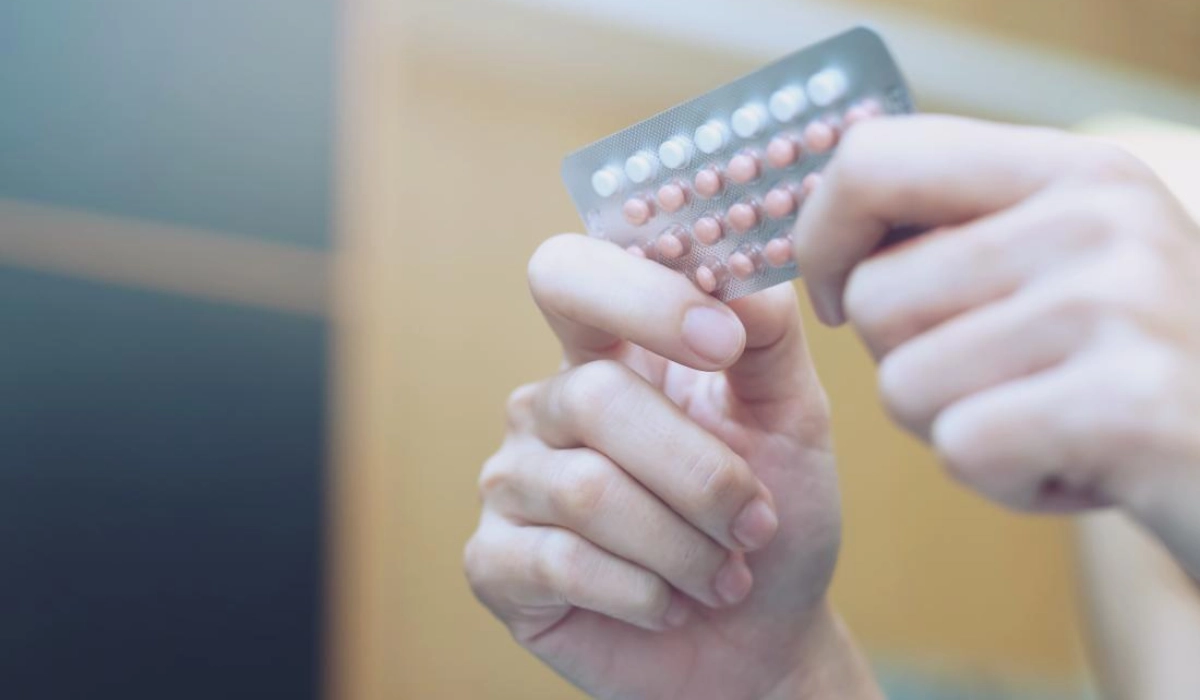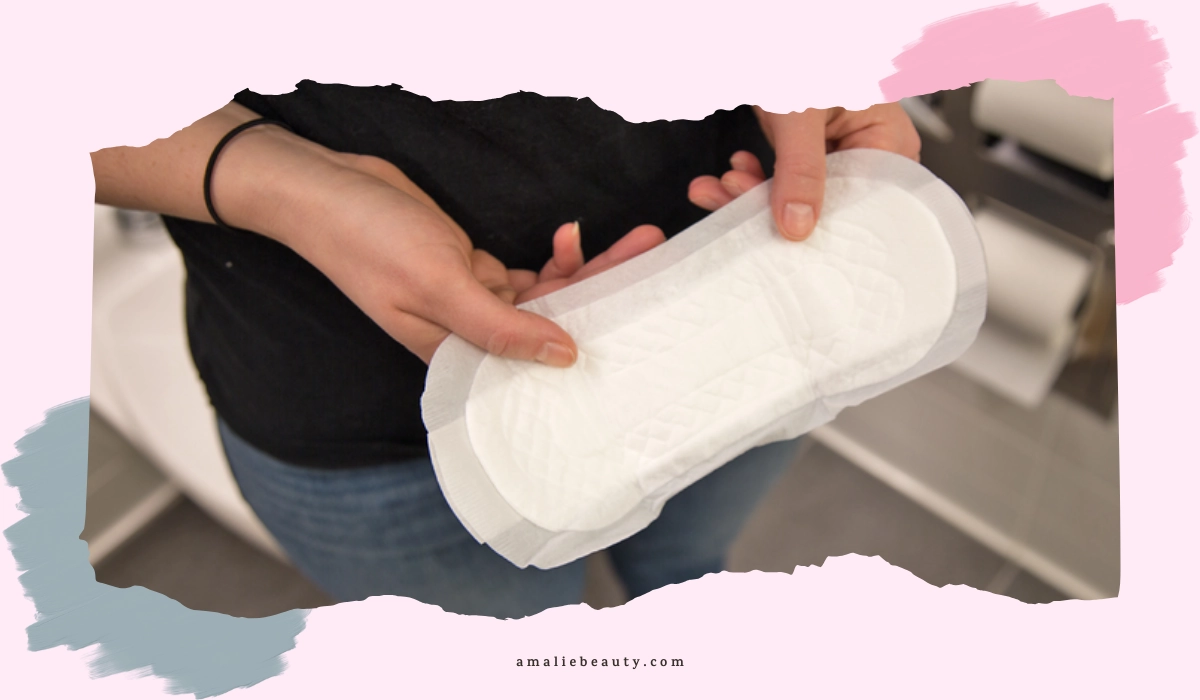Do you ever think whether yeast infections can cause a delay in menstruation? Given that many women suffer from yeast infections characterized by itching, burning, and abnormal discharges, the question is a fair one to address.
Menstruation, an important physiological function in a woman’s reproductive organs, is often affected by various medical conditions. Although the yeast infection is not likely to directly cause delay of periods, it can result in stress that might do so.
This article explores the link between yeast infection and delayed period, the symptoms and causes of yeast infections, and efficient medical and home-based treatment.
Yeast Infections and Menstrual Delays: Is There a Connection?
Directly, yeast infections do not delay menstrual periods. The cycle is regulated by hormones, usually unaffected by these infections. However, the stress caused by a yeast infection might impact the cycle. Stress can alter the hormonal balance, potentially causing delays.

What Are Yeast Infections?
Usually, women are more exposed to Yeast infections. Too much Candida Fungus causes itching, burning, and unusual discharge. Various factors can lead to yeast infections. These include hormonal changes, consumption of antibiotics, weaker immune systems, and diabetes.
Menstrual Cycle Basics
The menstrual cycle is a monthly change in a woman’s body. It gets the body ready for pregnancy. If a woman doesn’t get pregnant, this cycle causes her period. A period can be different for each woman. Understanding this cycle is fundamental to exploring its potential disruption.
Symptoms Of Yeast Infection
- Itching: The patients can easily detect the severe and lasting itching of the infected region.
- Redness and Swelling: This implies that there are irritations and inflammations at the point where that part is affected.
- Pain and Discomfort: It is typically observed in urination and during sexual intercourse and ranges from moderate to severe.
- Burning Sensation: This typically happens when one is urinating.
- Soreness: The injured area can become painful.
- Rash: This signifies additional aggravation of the affected region.
- Thick, Odorless Vaginal Discharge: A distinctive feature of vaginal yeast infections different from the normal vaginal discharge.
Causes Of Yeast Infection
- Antibiotics: They interfere with normal bacterial equilibrium and bring about yeast overgrowth.
- High estrogen Levels: They include those derived from contraception or pregnancy that may cause yeast infections.
- Growth of yeast occurs if the immune system is weakened.
- Uncontrolled Diabetes: It provides an optimal environment for high-sugar yeast.
- Poor Hygiene: Failure to change underwear often may result in a yeast infection.
- Tight, Non-breathable Clothing: It forms a warm and wet atmosphere suitable for yeast.
- Sexual Activity: It can carry yeast infections despite not being the type of infection categorized as sexually transmitted infections.
- Hormonal Imbalances: This disrupts natural flora, increasing yeast infection risk.
Treatments
Treatments for yeast infections, such as medication for a yeast infection, include different antifungal drugs. These include:
- Over-the-counter antifungal Creams: For example, Clotrimazole (Gyne-Lotrimin), Miconazole (Monistat), and Tioconazole (Vagistat). It is applied directly to the affected area to alleviate symptoms such as itching and pain.
- Oral Antifungal Medications: A commonly prescribed pill for treating yeast infection is a drug known as fluconazole (Diflucan).
- Vaginal Suppositories: These could be in the form of Clotrimazole or Miconazole antifungal medications inserted into the vagina.
Do not stop taking the medication before completion of the full course of treatment, even if symptoms start to subside.
Home Remedies To Treat Yeast Infections
Greek Yogurt: Greek yogurt is effective against yeast infections. This is because its probiotics help maintain a healthy vaginal environment.
For example, Lactobacillus acidophilus is one such probiotic. It works by balancing the body’s natural yeast levels. If you do not like yogurt, you can choose probiotics from supplements or other probiotic-rich foods. However, for treating yeast infections, plain Greek yogurt is recommended.
Coconut Oil: Coconut oil, a natural oil from coconut flesh, has antifungal benefits. It works against yeast infections like C. Albicans. Apply pure, organic coconut oil directly to the affected area for treatment.
Boric Acid: Boric acid capsules can be an effective option for treating yeast infections. They are particularly helpful for women who often get them. The usual approach is inserting a 600 mg capsule vaginally once a day for three weeks.
However, it is important to talk to a doctor before trying boric acid as a treatment. This method has helped manage symptoms and fight the infection.
Tea Tree Oil: Tea tree oil is renowned for its antifungal properties. It helps combat yeast infections like Candida albicans. If you are considering using tea tree oil, discuss it with your gynecologist first. Remember, don’t apply it directly inside the vagina or take it orally.
Turmeric: Turmeric is good for fighting infections and reducing inflammation. Simply mix it with water and apply it to the infected area. For internal benefits, drink it with warm water or as turmeric tea. It is an easy home remedy since most households have turmeric.
Licorice Powder: Licorice powder can help with fungal infections by fighting inflammation and microbes. Boil it in water until it becomes a paste, let it cool, and then apply it to the infected skin twice daily.
When To Seek Medical Help?
A physician should ultimately be consulted in case of concerns regarding yeast infection or monthly cycle. Severe symptoms like a long delay of your period or recurring yeast infections can mean an underlying medical condition.
Preventive Measures
Maintain Good Hygiene: Bathe regularly and change underwear daily to ensure the genital area is clean and dry.
Wear Breathable Clothing: Choose a light, breathable dressing, and cotton panties to avoid sweat.
Avoid Scented Products: Avoid irritation in the genital area using unscented soaps, baths, and sprays.
Manage Blood Sugar Levels: Especially for diabetics, elevated sugar levels lead to yeast proliferation.
Limit Antibiotic Use: Use antibiotics only when necessary to preserve the natural balance among bacteria.
Eat a Balanced Diet: Add fruits, vegetables, whole wheat, and probiotics, including yogurt, to keep the right balance of bacteria.
Avoid Douching: Douching can disrupt natural harmony amongst bacteria and yeast populations in the vagina.
Practice Safe Sex: Yeast infection is not a sexually transmitted disease, but a condom may prevent the spread of infections.
These measures can greatly lower the risk of yeast infections. For more personalized advice, consult a healthcare provider as they can better deal with such problems.
In conclusion, yeast infections are a common concern among women. Symptoms like itching, burning, and abnormal discharge mark these infections. They don’t directly cause menstrual delays.
However, the stress associated with these infections may influence the menstrual cycle. See a healthcare professional for personalized advice, especially when persistent or severe symptoms occur.
Addressing these infections promptly can help maintain both menstrual and overall reproductive health. Stay informed, practice good hygiene, and don’t hesitate to seek medical guidance when needed.

